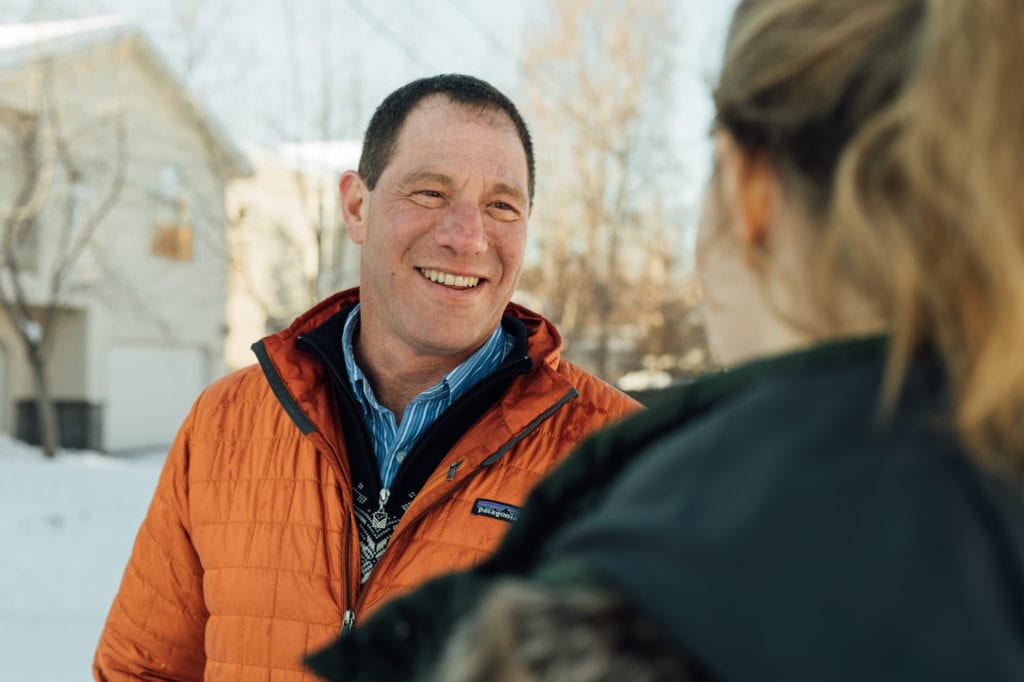
High costs of health insurance, prescription drugs and overall care in Alaska are the most expensive in the country, inhibiting many residents from getting the care they need and also inhibiting growth of the state’s economy, says U.S. Senate candidate Dr. Al Gross.
Our healthcare system is broken, Gross said, and as a senator he would be willing to work both sides of the aisle to make health care more affordable and see that patients are protected.
That, in short, is the crux of his campaign and his motivation to run for office, Gross said in an interview with The Cordova Times.
Seeing the struggles over the high cost of health care of his patients over nearly 20 years as an orthopedic surgeon in Southeast Alaska prompted Gross, a political independent, lifelong Alaskan and successful commercial fisherman, to leave his medical practice to go back to college and study the nation’s health care system. His goals in Congress, Gross said, would include making Medicare a policy offered to all through the health insurance exchange, so that private health insurance plans would have to compete with the public plan, driving down rates in private industry, he said.
Gross advocates for a plan that would allow the federal government to negotiate with pharmaceutical companies, to lower the cost of prescription drugs, and also to give all Americans the right to purchase prescription drugs from Canada, where the cost is lower.
“I don’t think health insurance should be free, but it should be and can be affordable,” he said.
Even a couple of years ago 35 perent of the state government’s costs were for health care, he said. While Medicare takes about four percent of the dollar private health insurance keeps going up and up, taking about 25 percent to 30 percent of the dollar, he said.
A veteran commercial fisherman who financed his first boat through a bank loan as a teenager and paid his way through college and medical school by fishing, Gross also voiced concerns about current and future environmental and economic fisheries issues. Those issues impact both the state’s economy and food supplies, for Alaska and far beyond, he said.
“We need to figure out what is going on in the ocean,” he said. We need to study the ocean and see what is happening.
“I am also an advocate for extending Alaska’s jurisdiction from three miles out to 12 miles,” he said. “That would give Alaska better control over its borders. It would close loopholes that allow cruise ships in Alaska to dump trash in inside waters.”
On international trade issues, Gross was critical of Chinese tariffs on Alaska fish and the purchase of fish from Russia despite Russian embargos on American seafood. “We should not be buying fish from Russia,” he said.
Alaska also faces a commercial seafood threat from Russia’s attempts to expand their fishing zones in the Bering Sea, and competition from illegal crabbing by Russian vessels, he said.
His campaign focus extends to improvements that could be made in the state’s infrastructure, from repairs to the Port of Anchorage to extended broadband in rural Alaska, steps critical to diversifying the state’s economy. With the Arctic thawing out, national security is becoming a bigger and bigger issue in the far north, Gross said.
“There will be a lot of economic competition in the Arctic as the fish are moving north; we need to be in a stronger position to guard our assets,” he said.
Gross spoke of many opportunities for renewable energy, projects he said will help drive down the cost of living in rural Alaska. The state has vast opportunities to use its abundant renewable energy resources, from solar, wind, geothermal tidal and wave to biomass, hydroelectric and pumped energy storage. These offer abundant opportunity to diversify the state’s energy mix and maintain a balance between preservation and production for the state’s sustained health and economic prosperity, he said.
With Alaska now being ground zero for climate change, warming at twice the rate of the rest of the United States, those temperature changes are already impacting the state’s multi-million- dollar fisheries industry, recreational industry, transportation systems and other aspects of life.
Gross also spoke of the importance of a strong military defense to national security and Alaska’s economy. His official statement on that issue notes that Alaska can build on and diversify its economy through more federal investment in the military presence in Alaska, but also by looking for ways to spin off industries and private sector jobs.





